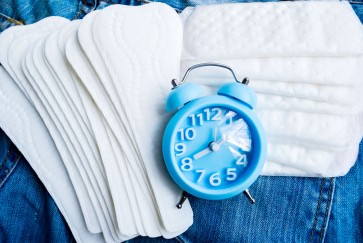Popular Reads
Top Results
Can't find what you're looking for?
View all search resultsPopular Reads
Top Results
Can't find what you're looking for?
View all search resultsSeeking sustainable menstrual solution
Addressing the taboo of menstrual hygiene is a complex challenge, laden with age-old traditions and gender norms. In recent years many initiatives around the world have been working to break this stigma by connecting girls and women in disadvantaged communities to the menstrual products they need.
Change text size
Gift Premium Articles
to Anyone
L
ike most teenage girls, Devita, not her real name, talks about her period in hushed tones punctuated with giggles. The 14-year-old schoolgirl from Sumba, East Nusa Tenggara (NTT) said she used a common brand of disposable pads, the ones her mother usually bought for her at the nearest stall.
When it is time to change her pad, she flushes the used one down the toilet, unaware that it could block the sewer and pollute the ocean.
Some of Devita’s schoolmates throw them in a garbage bin, from where they would likely end up in a landfill, and a few burn their used pads to keep the evil spirits away — a myth passed down from their mothers or other female relatives.
Whether you use the conventional Indonesian expression datang bulan or the more modern term dapet, talking about menstruation is still taboo in many parts of Indonesia. Adolescent girls typically receive information from their mothers or other women around them, but they are often uncomfortable to ask questions out of embarrassment or shame.
As a result, girls and women — especially in remote, rural areas — are kept from learning knowledge crucial to their health.
Addressing the taboo of menstrual hygiene is a complex challenge, laden with age-old traditions and gender norms. In recent years many initiatives around the world have been working to break this stigma by connecting girls and women in disadvantaged communities to the menstrual products they need.
For example, Sustainable Health Enterprises and Saathi Pad are making banana fiber pads in Rwanda and the Pad Project is an initiative that donates pad-making machines to villages in India.


















